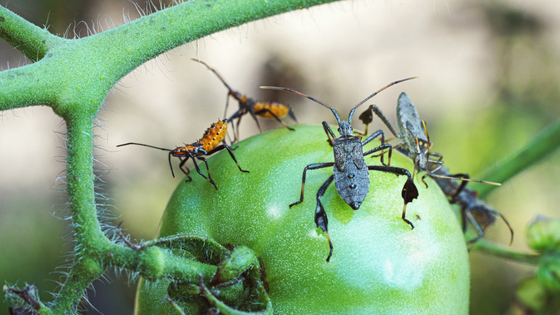7 Facts Worth Knowing If You Have a Stink Bug Problem in Stockton
Stink bugs begin their reign of terror during March and remain active until October. Because of this, if you have a stink bug problem in Stockton, you will have to suffer from several months of annoyance and headache. If you have a stink bug problem in your Stockton home, be sure to contact a pest control expert right away.
Knowing some important facts about these pests will help you have an easier time controlling and preventing them from invading your home. Below are 7 facts about stink bugs and ideas on how to handle this particular pest problem:
They do not have many natural predators
Wasps eat stink bug eggs and nymphs. Certain birds, insects, and reptiles eat adult stink bugs but they do not consume them in great numbers to reduce their population. This is mainly because the odor produced by stink bugs has a bad taste which causes most fishes, birds, and other animals to spit them out.
However, it doesn’t mean that you shouldn’t make use of natural predators to keep stink bugs out of your property. To reduce their number, attract the following natural enemies of stink bugs to your garden:
- Toads
- Praying mantis
- Spiders
- Lacewings
- Parasitic flies
Stink Bugs are more active indoors during fall
Stink bugs cannot tolerate cold temperatures. As such, when fall comes around, these pests will start entering your home to escape the cold outside. They will make their way indoors via your windows, doors, cracks, and crevices. These pests will also send out an invitation to their fellow stink bugs to join them.
Before the cold season comes, close off or seal any possible entryways. Fill cracks, holes, or crevices with caulking. Ensure all doors and windows are shut or covered with screens as well.
They emit different types of scents
Stink bugs stink – that’s how they got their moniker. They emit a foul odor when they feel threatened or when crushed. Some people say the odor they emit is similar to that of cilantro or skunks.
However, stink bugs can also produce a different chemical odor. They release this scent when inviting other stink bugs to join them in their hiding spot for the winter, which could be your home.
They do not breed in your home during winter
To give you some consolation, stink bugs do not reproduce and lay eggs during winter when they are inside your home. This is because, during the cold months, stink bugs enter a hibernation state called diapause. They will only start reproducing when the weather becomes warmer.
Brown marmorated stink bugs do not bite
Brown marmorated stink bugs, the most common type of stink bugs in the USA, do not bite and sting people. They only use their needle-like mouth to pierce the skin of fruit, plants, and other insects to suck out the juices.
Although the stink bugs won’t bite you, you may still experience red, irritated skin if you accidentally touch their exoskeletons’ sharp edges.
Their population change by year and location
There will be instances wherein you will have a huge stink bug problem in your area but other states may not be troubled at all. You may also notice that last year you didn’t have any issues, but this year, it seems like you are harboring these pests.
It is important to remember that climate during the year can affect the number of stink bugs that survive and reproduce. This can cause a slight reduction the following year.
Stink bugs are rather new to North America
Lastly, brown marmorated stink bugs are actually native to Asia and were introduced to this country by accident. They first made their appearance in Allentown, Pennsylvania in 1998 – just 10 years ago.
You don’t have to share your home with stink bugs. To get rid of these pests immediately, get help from trained pest control technicians as soon as you see these bugs around your home.
Stink Bug Problem Stockton Professional Pest Control Services in Tracy CA
Serving Northern California

